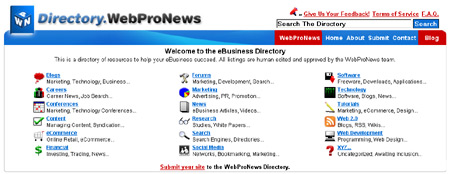Please bear with me as I go through a brief history of basic online advertising. The evolution of targeted online advertising is interesting, because I believe the perceived harmlessness of early advertising technology and targeting tactics lulled many people into a sense of complacency or perhaps even false security.
In the beginning of targeted online advertising, there were banner ads. As many people recall, these were supposed to drive the Internet marketing industry in its infancy. Scads of publishers paid scads of money based on a CPI (cost per impression) model or simply paid huge dollars for banner ads and other targeted online advertising on well-trafficked sites.
Then something crazy happened - nothing. It turns out that the banner advertising technology on the Internet was not the magic bullet it was purported to be. The old way of making money based on providing content (the way magazines and newspapers ran advertising) just didn't seem to work in this context.
This new advertising technology was part of the reason for the collapse of the dot-bomb era. All the talk was about "eyeballs," "stickiness," "bleeding edge," "cradle to grave," and several other terms that, in retrospect, would have sounded more at home in a Wes Craven movie than in an emerging industry. Hundreds, perhaps thousands, of business models depended on a traditional marketing strategy working more or less the same as it always had when introduced into a non-traditional setting.
All the while, one company, originally called GoTo, then Overture, and finally bought by Yahoo!, actually formulated a targeted online advertising system that worked - keyword advertising. Companies could bid on a per-click basis for certain key terms, which sent valuable traffic to its website.
Obviously, the improvement in advertising technology had to do with the model itself, which was perpetuated on relevance. By only bidding on keyphrases that you wanted, you could only pay for visitors who had already shown an interest in your products or services. This targeted online advertising model was soon copied by Google, who tweaked it and made it better.
There were not many raised eyebrows at this time, in terms of privacy. After all, the user was the one entering the query, and nobody suspected at the time that search engines might one day actually create individual profiles on users. We were all just really enjoying "having the information at our fingertips" without the potential hazards of ink stains and paper cuts that traditional research required.
Google then took a similar idea a step further. Instead of just serving up targeted online advertising on its home page, the company created a content distribution network called AdSense. In this program, owners of websites could sign up to have the ads placed on their sites. Google would then use a "contextual" logic to determine which ads to place where. In other words, Google would "read" the content on a page and then serve up targeted online advertising in the area provided by the site owner that was relevant to the content.
There were a few missteps with this new advertising technology (one classic example was when the online version of the NY Post ran a story in 2004 about a murder victim whose body parts had been packed into a suitcase. Running alongside the story was an ad that Google served up for Samsonite Luggage). Yet this targeted online advertising service also caught on, with nary a cry from privacy people. After all, you don't have to visit the sites. And the site owners don't have to sign you up for the service, right?
Suddenly, Gmail was offered and that raised some eyebrows. Gmail, of course, is Google's free email-based platform. Gmail gave people an (at that time) unprecedented 1 gigabyte of email space (Yahoo!, if memory serves, offered 4 megs for free email accounts and charged people for more memory). The only caveat – Gmail would use a similar advertising technology platform as AdSense, but it would decide which ads to serve up by reading through your emails.
Well, this new approach to advertising technology creeped some people out, and privacy advocates were a bit more vocal about using targeted online advertising by parsing through people's emails. A California lawmaker tried to introduce some legislation preventing the practice. International privacy groups chimed in with their own concerns. In the end, however, the fact remained that one had to sign up for a Gmail account and everyone that did was (presumably) aware of how the service worked before they did sign up. So it was an opt-ín system – If you didn't want Google parsing through your email and serving up relevant, targeted online advertising, you didn't have to use the service.
So there we all were, happily surfing away, not a care in the world. What most of us didn't realize was that enough free cookies were being distributed to each of us to turn the otherwise docile Keebler elves into tree-dwelling Mafioso erroneously plotting a turf war.
These cookies, of course, are the ones that websites place on your computer when you visit – little packets of information that record your visit, and sometimes, your activity there. Certainly, there's a legitimate reason for this. When you return to a website, it can help if it remembers your last visit and you can pick up where you left off. Assume, for example, that you were making multiple purchases from an e-commerce site and had a bunch of stuff in your shopping cart but were forced to abandon the site before completion. It's nice to go back and pick up where you left off without having to do it all over again.
Digital advertisers, however, saw another opportuníty for targeted online advertising. They invented advertising technology that would scour through the cookies on your personal machine, figure out what you liked and disliked by looking at the types of sites you went to, and then feed up highly targeted online advertising based upon your browsing history. These companies included aQuantive, DoubleClick, ValueClick, and others. Of the companies I mentioned, only ValueClick is still independent. Google snapped up DoubleClick, while Microsoft snapped up aQuantive. Clearly, these companies believe in the future of Internet advertising technology and also believe in the long-term legality of this technology.
Now some real red flags were raised. I've written about this advertising technology before, so I'm not going to go over it all again here. Suffice to say that some government regulators were pretty skeptical about this new form of advertising technology and there have been numerous suggestions for regulation. The lack of uproar from the public, however, has not really created any backlash for the companies in question. It could be because there is widespread ignorance about Internet advertising technology (and I believe there is, based on conversations with people of average Internet experience). Perhaps a part of it is also that privacy has been eroding on the Internet one incremental step at a time.
-searchspiderz





